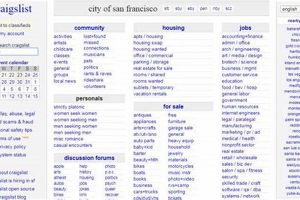Long-term hotel residency establishes a non-traditional form of housing where individuals maintain their primary residence within a hotel setting. This arrangement contrasts with typical short-term hotel stays associated with travel or temporary displacement. For example, an individual might choose a hotel as their permanent address, receiving mail and other services there.
This housing strategy can offer advantages such as simplified living, with amenities like housekeeping, laundry, and dining readily available. It can provide flexibility for those whose work or lifestyle requires mobility. Historically, extended hotel stays were more common among entertainers and traveling professionals. The rise of apartment-hotels and extended-stay hotels has broadened the appeal of this lifestyle to a wider demographic.
Further exploration will address practical considerations such as cost analysis, legal and logistical aspects, the impact on lifestyle, and comparisons with traditional housing options. Additionally, the evolving landscape of the hospitality industry and its accommodation of long-term residents will be examined.
Tips for Long-Term Hotel Living
Careful planning and consideration are essential for successful long-term hotel residency. The following tips offer guidance for navigating this non-traditional housing choice.
Tip 1: Negotiate Rates. Hotels often offer discounted rates for extended stays. Negotiating a lower rate upfront can significantly reduce overall costs.
Tip 2: Consider Amenities. Evaluate the availability of essential amenities such as in-room kitchen facilities, laundry services, and internet access. These factors can impact daily living and long-term comfort.
Tip 3: Understand Hotel Policies. Review policies regarding guest visitors, pet accommodations, and package deliveries. Clarity on these rules ensures a smooth and compliant stay.
Tip 4: Establish a Routine. Maintaining a regular schedule for meals, sleep, and work can contribute to a sense of normalcy and productivity within a hotel environment.
Tip 5: Maintain Communication with Hotel Staff. Open communication with hotel management and staff fosters a positive relationship and facilitates prompt resolution of any issues that may arise.
Tip 6: Think About Storage. Long-term hotel living requires strategic planning for personal belongings. Explore options like utilizing under-bed storage, requesting additional storage space from the hotel, or utilizing off-site storage facilities.
Tip 7: Research Locations. Hotel location plays a crucial role in accessibility to work, essential services, and social activities. Consider proximity to public transportation and local amenities.
Careful consideration of these factors can contribute to a positive and productive experience with long-term hotel residency. Implementing these strategies can help individuals maximize the benefits and minimize potential challenges associated with this lifestyle choice.
This guidance lays the groundwork for a well-informed decision regarding long-term hotel living. The following sections will delve into specific aspects, including financial planning, legal considerations, and lifestyle adjustments.
1. Cost
Cost represents a critical factor in the feasibility and long-term sustainability of hotel living. A thorough understanding of the financial implications is essential for informed decision-making.
- Nightly Rates
Negotiating favorable nightly rates is paramount. While hotels may offer discounts for extended stays, rates can still significantly exceed traditional rental costs. Securing a competitive rate is crucial for long-term affordability. For example, a discounted rate of $75 per night still accumulates to over $27,000 annually, excluding additional expenses.
- Incidental Expenses
Beyond the room rate, incidentals such as meals, laundry services, and Wi-Fi access contribute to the overall cost. These seemingly small expenses can accumulate substantially over time. Preparing meals in-room, when feasible, can help mitigate these costs.
- Amenity Fees
Some hotels charge additional fees for amenities like parking, gym access, and pet accommodations. These fees must be factored into the overall budget. Understanding which amenities are included in the base rate and which incur extra charges is crucial.
- Hidden Costs
Hidden costs can emerge unexpectedly, such as resort fees, early check-in/late check-out fees, or charges for damages. Careful review of hotel policies and fee schedules can help avoid unforeseen expenses. For example, a daily resort fee of $25 can add over $9,000 to annual expenses.
Careful budgeting and cost management are essential for successful long-term hotel living. Comparing the total cost of permanent hotel residency with alternative housing options, like apartments or home ownership, provides a realistic assessment of financial viability. Understanding and mitigating these cost factors significantly contribute to a sustainable and financially sound decision.
2. Legality
Establishing legal residency in a hotel requires careful navigation of local laws and regulations. While hotels accommodate short-term guests, establishing permanent residency introduces complexities related to domicile, voting rights, and access to public services. Regulations vary significantly by jurisdiction. Some localities may require proof of permanent address for services like driver’s licenses and voter registration. Others may have specific regulations concerning long-term hotel occupancy, including limitations on the duration of continuous stays. For example, certain jurisdictions may require individuals to register their hotel room as their primary residence after a specific duration, such as 30 or 90 days. Failure to comply with these regulations could lead to legal complications, including fines or challenges accessing essential services.
Furthermore, legal considerations extend to landlord-tenant laws. While traditional landlord-tenant relationships may not fully apply to hotel stays, certain legal principles related to habitability and safety standards remain relevant. Understanding the legal rights and responsibilities of both the hotel management and the long-term resident is crucial for avoiding disputes and ensuring a compliant stay. For instance, while hotels are obligated to maintain safe and habitable conditions, the resident’s rights regarding modifications or alterations to the hotel room are typically limited compared to those of a traditional tenant. Additionally, some jurisdictions might offer legal protections for long-term hotel residents against arbitrary eviction, especially after a certain duration of continuous occupancy.
In summary, navigating the legal aspects of permanent hotel residency necessitates thorough research of local regulations and a clear understanding of applicable landlord-tenant principles. Failure to comply with these legal frameworks can lead to significant complications, impacting access to essential services and creating potential legal challenges. Proactive engagement with local authorities and a comprehensive understanding of resident rights contribute to a secure and legally sound long-term hotel stay.
3. Lifestyle
Lifestyle considerations play a significant role in determining the suitability of long-term hotel residency. This housing model presents a unique set of advantages and disadvantages that impact daily routines, social interactions, and overall quality of life. The compact living spaces in hotels require individuals to adopt minimalist approaches to belongings and organization. This can be appealing to those who value simplicity and reduced clutter, but challenging for those accustomed to more spacious living arrangements. For example, families with children might find the limited space restrictive, while single professionals might appreciate the convenience and low maintenance.
Hotel living offers built-in amenities, such as housekeeping, laundry services, and on-site dining. These conveniences can free up time and simplify daily routines, appealing to individuals with busy schedules or those who prefer not to manage household chores. However, this convenience comes at a cost, potentially increasing overall living expenses compared to traditional housing. Furthermore, the public nature of hotel environments requires adaptation. Interactions with staff and other guests become a regular part of daily life, which can be a positive social aspect for some, but a source of discomfort for others seeking more privacy. The availability of communal spaces, such as lounges and fitness centers, can foster a sense of community among long-term residents, creating opportunities for social interaction. Conversely, the transient nature of hotel populations can limit the development of deep social connections.
In summary, the lifestyle implications of permanent hotel residency present a trade-off between convenience and limitations. Individuals considering this housing model must carefully evaluate their personal preferences, lifestyle needs, and tolerance for communal living. A realistic assessment of these factors is crucial for determining whether the benefits of simplified living and built-in amenities outweigh the constraints of limited space and public environments. The decision ultimately hinges on aligning this lifestyle with individual priorities and values, ensuring a sustainable and fulfilling living experience.
4. Practicality
Practicality represents a crucial dimension of long-term hotel living, encompassing the logistical and functional aspects of daily life within this non-traditional housing model. An examination of key practical facets reveals both advantages and challenges associated with maintaining a hotel as one’s primary residence.
- Mail and Package Handling
Receiving mail and packages requires specific arrangements within a hotel setting. Hotels typically offer mail services for guests, but long-term residents may need to establish more formalized procedures with the hotel’s front desk or mailroom. Some hotels may assign a dedicated mailbox or provide a designated area for package deliveries. The efficiency and reliability of these services can significantly impact the ease of managing personal correspondence and online purchases.
- Laundry and Clothing Care
While most hotels offer laundry services, the cost and convenience can vary significantly. Some hotels provide in-room laundry facilities, while others utilize centralized laundry rooms or outsource to external services. Long-term residents must factor laundry costs into their budget and establish routines for clothing care that align with the hotel’s available resources. For instance, relying solely on hotel laundry services can become expensive, while utilizing a shared laundry room may require scheduling and flexibility.
- Food Preparation and Storage
Access to kitchen facilities significantly impacts meal preparation and food storage. While some hotels offer in-room kitchenettes or microwaves, others may lack these amenities entirely. Long-term residents must adapt their dietary habits and food storage strategies accordingly. Relying on restaurant dining or take-out meals can become costly, while utilizing limited in-room facilities may require creativity and careful planning. The availability of refrigeration and storage space for groceries also influences practical considerations regarding food management.
- Space and Storage
Hotel rooms typically offer limited storage space for personal belongings. Long-term residents often require creative solutions for organizing clothing, personal items, and other possessions within a compact environment. Utilizing under-bed storage, maximizing closet space, and employing organizational tools can help optimize available space. However, the inherent limitations of hotel rooms necessitate careful consideration of possessions and potentially require off-site storage solutions for larger items or seasonal belongings. The feasibility of long-term hotel living often depends on adopting a minimalist approach to material possessions.
These practical considerations significantly influence the overall feasibility and comfort of long-term hotel living. Successfully navigating these logistical aspects requires adaptability, planning, and proactive communication with hotel management. The degree to which these practicalities align with individual needs and preferences directly impacts the long-term sustainability of maintaining a hotel as a primary residence.
5. Social Impact
Social impact constitutes a significant facet of long-term hotel residency, encompassing the effects on social interaction, community engagement, and personal well-being. This lifestyle presents a unique social landscape distinct from traditional housing arrangements, impacting residents’ connections with others and their integration within a community.
Hotel environments, by their nature, foster interactions with a diverse range of individuals, including staff, short-term guests, and other long-term residents. This can lead to increased social opportunities, facilitating casual conversations and the development of acquaintances. However, the transient nature of hotel populations can hinder the formation of deep, lasting relationships. The constant influx and outflow of individuals can create a sense of impermanence, making it challenging to establish a stable social network. For example, a long-term resident might develop friendly rapport with hotel staff but struggle to form meaningful connections with other residents due to their short-term stays. Conversely, some individuals might thrive in this dynamic environment, appreciating the opportunity to interact with new people regularly. The impact on social well-being depends largely on individual personality and preferences.
Furthermore, establishing a sense of belonging within a hotel environment presents unique challenges. Unlike traditional neighborhoods, hotels often lack established community structures and social organizations. This can lead to feelings of isolation or detachment, particularly for individuals who value strong community ties. While some hotels might organize social events or activities for guests, these are often geared towards short-term visitors and may not foster a strong sense of community among long-term residents. This lack of community infrastructure can necessitate greater effort on the part of long-term residents to actively seek out social connections and build relationships outside the hotel environment. For example, joining local clubs, attending community events, or volunteering in the surrounding area can help mitigate feelings of isolation and foster a sense of belonging within a broader community context.
In conclusion, the social impact of permanent hotel residency presents a complex interplay of potential benefits and challenges. While increased social interaction within the hotel environment can offer opportunities for connection, the transient nature of the population can hinder the development of lasting relationships. The lack of established community structures further complicates social integration, requiring proactive efforts to cultivate a sense of belonging. Understanding these social dynamics is crucial for individuals considering long-term hotel living, allowing them to make informed decisions about their social well-being and implement strategies to navigate the unique social landscape of this housing model.
Frequently Asked Questions
This section addresses common inquiries regarding permanent hotel residency, providing concise and informative responses to facilitate informed decision-making.
Question 1: Is permanent hotel residency a financially sound decision?
Cost-effectiveness depends on factors such as location, hotel rates, and individual spending habits. While potential discounts for extended stays exist, overall expenses can exceed traditional housing costs. Thorough budgeting and comparison with alternative housing options are essential.
Question 2: What are the legal implications of living in a hotel permanently?
Legal considerations vary by jurisdiction. Regulations regarding domicile, voting rights, and access to public services must be addressed. Understanding local laws related to long-term hotel occupancy is crucial for compliance.
Question 3: How does permanent hotel living impact daily life?
Daily routines adapt to the hotel environment, including limited space, public interactions, and reliance on hotel amenities. Adjustments in meal preparation, laundry, and social activities are often necessary. Personal preferences and lifestyle compatibility are key factors.
Question 4: What practical challenges arise from living in a hotel permanently?
Practical challenges include limited storage space, mail and package handling, and access to laundry and kitchen facilities. Resourcefulness, organizational skills, and proactive communication with hotel management are essential for navigating these challenges.
Question 5: How does living in a hotel affect social connections and community integration?
Social implications include increased interaction with hotel staff and guests, potentially fostering new connections. However, the transient nature of hotel environments can hinder deep relationship development. Active engagement in external communities may be necessary for social fulfillment.
Question 6: What are the key factors to consider before choosing permanent hotel residency?
Key considerations include cost analysis, legal compliance, lifestyle compatibility, practical limitations, and potential social impacts. A comprehensive evaluation of these factors, weighed against individual needs and priorities, informs a well-rounded decision.
Careful consideration of these frequently asked questions provides a foundational understanding of the complexities associated with permanent hotel residency. Further research and consultation with relevant professionals are recommended before making a final decision.
The subsequent section will offer a concluding perspective on the evolving landscape of long-term hotel living and its potential future trends.
Conclusion
Living in a hotel permanently presents a unique housing alternative, characterized by a distinct blend of convenience, flexibility, and inherent limitations. This exploration has examined the multifaceted nature of this lifestyle choice, encompassing financial implications, legal considerations, lifestyle adjustments, practical challenges, and social impacts. Cost analysis reveals the potential for both significant expense and strategic savings, depending on location, negotiation skills, and spending habits. Legal compliance necessitates navigating local regulations related to domicile, voting rights, and access to public services. Lifestyle adaptation requires embracing compact living, public interactions, and reliance on hotel amenities. Practical considerations involve addressing limited storage, mail handling, and access to laundry and kitchen facilities. Social impacts encompass both increased opportunities for interaction within the hotel environment and potential challenges related to community integration and lasting relationship development.
The decision to embrace hotel living as a permanent arrangement demands careful consideration of individual needs, priorities, and financial resources. This non-traditional housing model offers a viable solution for certain demographics, particularly those prioritizing mobility, simplified living, and access to built-in amenities. However, the inherent limitations of space, privacy, and community integration necessitate thorough evaluation. As the hospitality industry evolves and adapts to changing societal needs, the landscape of long-term hotel residency is likely to transform further, potentially offering innovative solutions to address current limitations and enhance the overall experience of permanent hotel living. The future may witness the emergence of specialized hotel offerings specifically tailored to long-term residents, fostering stronger communities and providing enhanced support services. Prospective residents are encouraged to conduct thorough research, engage with current long-term hotel residents, and carefully assess their personal circumstances before making this significant lifestyle commitment.







